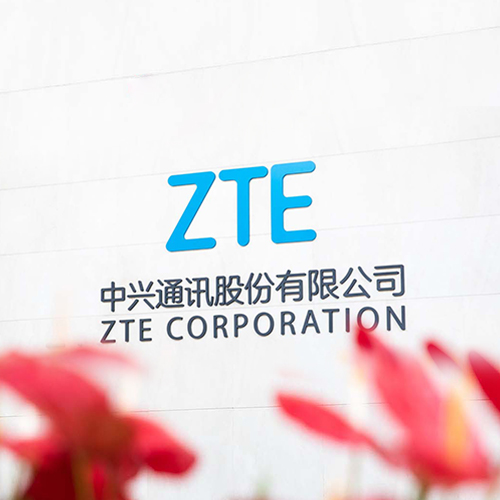18 April 2022, Shenzhen, China - ZTE Corporation (0763.HK / 000063.SZ), a major international provider of telecommunications, enterprise and consumer technology solutions for the mobile internet, today announced that Mr. Tao Wenqiang, Chief IP Product Planning Engineer, has delivered a speech entitled "Cloud-Network Convergence Upgrade: Network as a Cloud Service" at the 23rd edition of the MPLS, SD&AI Net World Congress.
“In order to solve the problems and deficiencies in the existing hierarchical cloud-network architecture, orchestrator and multilayer controller, ZTE proposes the cloud-network convergence upgrade solution - ‘Network as a Cloud Service’ to build a elastic, programmable, AI-based and automated IBN (Intent-Based Networking), and innovatively upgrade the cloud-network convergence architecture,” noted Mr. Tao Wenqiang.
According to the estimation of Analysys Mason, a leading management consultancy focused on telecoms, media and technology, network cloud infrastructure investments by telecom operators will reach $30.1 billion worldwide by 2026.
“The existing cloud-network architecture in the industry cannot address the demands of such a large-scale cloud resource pool,” said Mr. Tao. “Operators and cloud service providers are focusing on constructing an agile, programmable, and customizable cloud infrastructure.”
Therefore, ZTE has come up with the Cloud IP solution for the cloud-network convergence upgrade. Mr. Tao Wenqiang introduced four advantages of the solution:
Firstly, it employs the hierarchically disaggregated intelligent cloud-network architecture where the network layer, service layer, and management & control layer are planned separately. ZTE’s in-house high-performance network processor chips work as strong engines for IP products, and deliver super-large bandwidth for operators’ networks.
Secondly, it uses SR/SRv6 as the main transport protocol to resolve the difficulties such as complicated IP network protocol types and cross-domain configuration, while enabling intelligent SRv6 routing and guaranteeing low latency of key services. With the industry-leading BIER (Bit Index Explicit Replication) technology, multicast services can be selected and provisioned on demand to save bandwidth.
Thirdly, based on innovative FlexE and TSN+ (Time-Sensitive Networking), it prevents bandwidth preemption between services, and provides 100% bandwidth guarantee for the latency-sensitive key services in the industry verticals to facilitate the digital network transformation.
Finally, it automates network operation and maintenance during the entire lifecycle by the industry’s first network automation platform that integrates management, control, analysis and AI functions.
Mr. Tao Wenqiang believes that, by deeply integrating metro and backbone networks, the Cloud IP solution can build a new-generation IP network with high elasticity, high availability and low latency to provide customers with extensible bandwidth, flexible billing and differentiated services.
ZTE actively drives Cloud IP interoperability tests, network pilots and large-scale deployment in China. For instance, ZTE has worked with China Mobile Research Institute to boost the industrial development of G-SRv6. The G-SRv6 solves the problem of high overhead of the SRv6 packet headers, and retains the scalability and programmability of SRv6, accelerating the large-scale deployment of the SRv6.
Moving forward, ZTE will continuously practice the theory of ultra-broadband, simplified and intelligent network construction, expecting to provide operators worldwide with a new-generation IP network.

